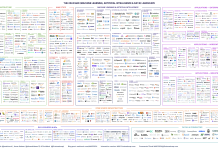Six research centres will receive £29 million in government funding to addresses challenges around online safety and privacy
A new online safety centre of excellence and six new research projects, from the universities of Bristol, Edinburgh, Bath, King’s College London and UCL, will help address challenges to online safety and privacy.
The initiatives are part of a £29 million investment by UK Research and Innovation (UKRI) to test how immersive technology can improve people’s education and explore how the Internet of Things can benefit people’s lives and improve their wellbeing.
The package also includes £7 million from UKRI’s Strategic Priorities Fund for a new National Research Centre on Privacy, Harm Reduction and Adversarial Influence online (REPHRAIN). The centre will develop a world-first Privacy Enhancing Technologies (PETs) test site to trial new ways to boost data privacy.
REPHRAIN will also work with industry, academics and the voluntary sector to create solutions for content moderation to tackle online harms including disinformation and providing age-appropriate experiences for users.
Minister for Digital and Culture Caroline Dinenage said:
“The UK’s world-renowned universities and fast-growing safety tech sector are coming up with answers to the important questions of the digital age – around privacy, security and online wellbeing.
“With this investment we are supporting organisations to build trust in the technology of tomorrow so people and businesses can use it to improve their lives and boost the economy.
“Add to that our forthcoming pro-innovation online harms legislation and we will give tech companies the clarity and responsibility to create safer online spaces for future generations to enjoy.”
UKRI will invest £22 million in five Next Stage Digital Economy Centres, delivered by the Engineering and Physical Sciences Research Council (EPSRC). The centres will explore ways of using technology safely to enhance people’s lives:
- CAMERA 2.0, led by the University of Bath, will use 3D cameras and artificial intelligence to improve participants’ health and deliver education or training in virtual environments which can be transferred to the real world.
- The Centre for Digital Citizens (CDC), led by Newcastle and Northumbria Universities, will design new digital technologies and services to bring about smarter living through ‘digital citizenship’, which involves better use of shared data to inform public health and wellbeing, community engagement including citizen-led public services and technology enhanced learning opportunities for the old and the young.
- The Horizon Institute, led by the University of Nottingham, will explore how to build better consumer trust around the use of personal data in new technologies and products that blend physical and digital elements.
- The Centre for the Decentralised Digital Economy (DECaDE), led by the University of Surrey, will explore how the platforms which underpin our peer-to-peer digital economy could be transformed by emerging data-centric technologies such as artificial intelligence (AI) and Blockchain, and made more accessible to individuals across society through alternative governance models to control by large organisations.
- The Future Places Centre, led by Lancaster University, will explore how technologies such as the Internet of Things can help individuals design and adapt the places they live, work and spend time in for healthier and more sustainable living.
Minister for Science, Research and Innovation Amanda Solloway said:
“We rely on technology for so many things in our lives – from paying our bills and buying our weekly food shop to tackling climate change and finding new treatments for diseases. We must continue investing so we can keep pushing the boundaries of technological developments that improve our daily lives and transform industries.
“The six new research centres announced today will support our ambitious scientists and researchers to develop incredible innovations such as strengthening our online safety and delivering virtual education and healthcare, helping to cement the UK as a science superpower.”
EPSRC Executive Chair, Dame Professor Lynn Gladden, said:
“New and emerging digital technologies will have a profound impact on many aspects of our lives, from our health and wellbeing to our work and leisure time.
“The investment announced today will not only support new ways of capitalising on this opportunity but will also help to ensure that those using these new technologies are safe while doing so.”
The funding comes as the government moves closer to publishing its response to the Online Harms White Paper consultation – setting out its final decisions on new regulations to put more legal responsibility on online platforms to protect people online











